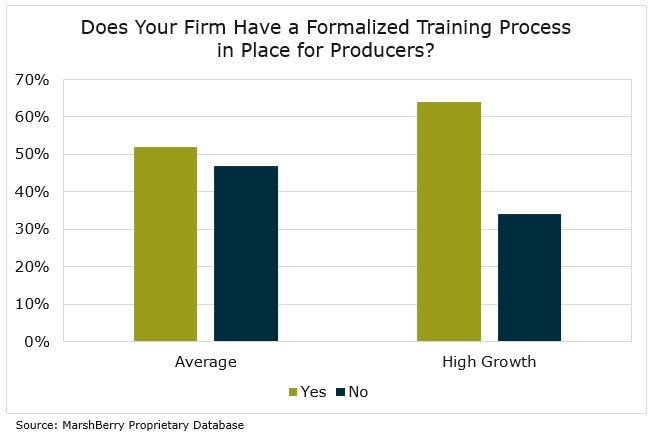What is your firm’s culture? It might include a compelling value proposition or describe how you provide the best service or have leading edge technology. But what about your sales culture? Too often a defined culture for a sales team is omitted from the equation despite its necessity in a growth driven firm. While company culture focuses on the holistic approach of a firm’s mission and conduct, a sales culture focuses specifically on the components that drive value creation. A sales culture establishes the foundation for a sales team to push growth boundaries. A business cannot grow without generating revenue, so why are production and sales never mentioned in culture discussions?
Data Driven Decisions Help Build a Productive Sales Culture
Agencies and brokers that successfully exhibit a sales culture are data-focused, have aligned goals across the organization, engage in professional development and coaching and are continuously reinforcing that culture. A true sales culture enables you to bring in high performing new salespeople and hit the ground running.
Tracking sales activity and results is paramount to establishing a sales culture. Many firms track performance metrics internally and share the sales results on a weekly and monthly basis. High growth firms take the metrics and data a step further, deriving actionable insights from the results. They have a well-defined sales process and can see where breakdowns occur in the process in order to improve. Often those insights lead to coaching moments.

Top organizations are constantly reinvesting in their team in the form of professional development. According to MarshBerry’s proprietary database, over 60% of high growth firms implement a formal training process for producers. Coaching and training have a significant impact on the behavior of a producer and drives higher results. Coaching makes employees better in their job, reinforces a consistent culture, and can help with recruiting and retention of top talent. When agencies are coaching and training employees, they should always review the metrics of the employee — the truth is always in the numbers.
In order to gain actionable insight from metrics, the correct numbers must be set from the start. New business goals for producers should be set on an annual basis and should stem from the organization’s overall goals. Each department and each employee’s growth goals should align with the organization’s goals.
Sales Culture Goes Beyond Improving Profits
Once a sales culture is established it must be supported and reinforced. It is insufficient to have a monthly sales meeting and claim there is a sales culture because of a reoccurring meeting. Sales culture is created and sustained because practices are reinforced. High growth firms are transparent with their metrics, pipeline management and sales processes at these meetings. They share a leaderboard of top sales performances and celebrate in successes. A sense of competition and urgency is created by recognizing those that are successful and eliminates complacency. Every decision made within the firm needs to consider the question, “does this decision lead to revenue generation with a new or existing client?”
You Cannot Afford NOT to Have a Sales Culture
Without an established sales culture, even top talent cannot perform to the highest level. The rockstar salesperson ends up becoming frustrated due to the lack of sales process, support and overall culture and typically ends up leaving. This results in further damage to a company’s culture and retention abilities.
Firms must focus on their sales culture and sales training in order to experience continued and consistent growth. A strong commitment to cultural change will yield better results by driving profitability and overall growth. Next time you are asked to describe your culture, will you describe it as a sales culture? Even more important, are you truly committed to that culture?
If you have questions about Today’s ViewPoint, or would like to learn more about how to create a data-driven sales culture, please email or call Brandon Hardesty – Vice President, at 440.769.0320.
